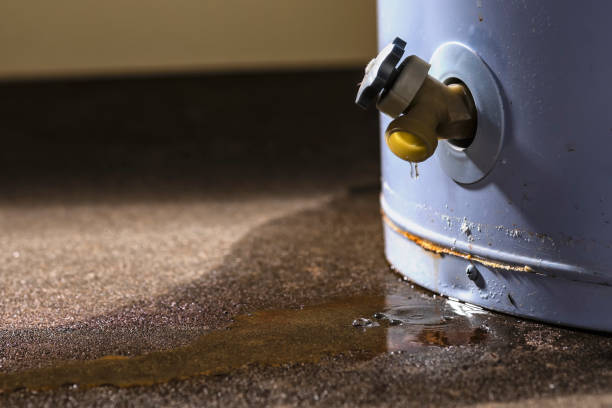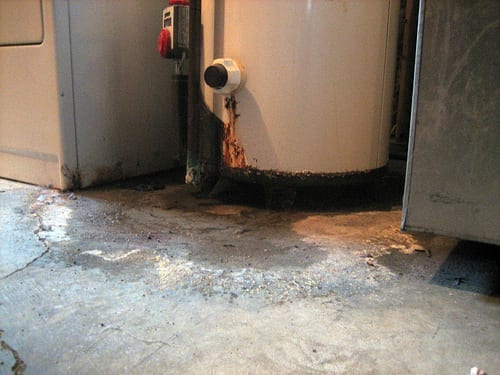This post following next about Maintaining & Draining a Water Heater is immensely captivating. Check it out for your own benefit and figure out what you think of it.

Whether it is located in the basement or a different area, busted water heaters can trigger stress. Having no hot water supply is also frustrating.
Turn Off Power Source
Before calling the plumber, closed off a gas water heating system by turning the temperature dial. This will certainly protect against electrocution, especially if there is a leak as water is a conductor. Commonly, the home heating aspect shuts off when the water hits a certain temperature.
Cut Off the Cold Water Supply
Cut off the tanks tap water supply from the source. When your storage tank is in good problem, the cool water quits filling up when the storage tank is full. If you can not find it or reach it, you have to transform off that major water supply line outside your residential or commercial property.
Call the Plumber
After doing the first 2 safety steps, you need to call your plumber to come right away to deal with a ruptured water heating system. There are typically signs that your aging water heating system has debris buildup in the inside.
Don't wait on significant flooding to call the plumber. Already, you will certainly need to invest more to restore your property. Instead, as soon as you detect these signs, have actually a professional come to evaluate your hot water heater give thanks to. Commonly, water heaters have a life-span of about 8 to 12 years. With normal inspection as well as maintenance, you can prolong its life.
Tidy up Building
After calling the plumber, record damages by making note as well as images so you can declare your home owner's insurance coverage. From there, start the immediate cleanup. Take out any type of important personal belongings to avoid further saturating. After that, get rid of any kind of standing water to avoid mold and also mildew growth. If you have a completely submersible water pump, use that to drain pipes the water. Otherwise, the conventional pail method will also work. Try to wipe out everything, including baseboards as well as wall surfaces. Keep them running to maintain air flowing if you have an electrical follower as well as dehumidifier. This will help hinder mold growth.
Remember, if you discover any problems with your water heating system, call the pros right away. You can not take this problem lightly due to the fact that a damaged thermostat can elevate water temp to a precariously high degree, leading to unintended burns.
Whether it is situated in the basement or a different space, broken water heating units can create stress. Before calling the plumber, shut off a gas water heater by transforming the temperature dial. After doing the first 2 safety actions, you should call your plumber to come right away to fix a burst water heating system. If you have a completely submersible water pump, make use of that to drain the water. Bear in mind, if you notice any issues with your water heating system, call the pros right away.
Is My Water Heater Broken?
The Water Heater is Old
No appliance will last forever. This includes a home’s water heater. During its lifespan, residents are going to face a situation where a new water heater installation will be necessary. The biggest problem with this is that most people are not sure when their water heater expires. Not knowing this can lead to serious risks if the unit begins to act up due to old age.
Most makes and models of water heaters will last between eight and 10 years. While 10 years is the age when water heater replacement is highly recommended, the need to replace the unit may occur before this time or after. If the unit doesn’t show any symptoms of a problem, it is a good idea to replace it at the 10-year mark (from the manufacture date).
Some of the symptoms that indicate a new unit is needed include rusting, leaks, noises, and a failure to heat up the water. Also, note that not all units have a 10-year life expectancy. The main exception to this rule is that a gas unit will last for six to eight years.
Rusty Heater Inlet Valve or Water
While steel is the strongest material on earth, it does have a weakness – rust. If corrosion occurs on a steel surface, it will begin to spread and eat through the steel in certain areas. On water tanks and pipes that are made of steel, rust is a warning sign of an impending leak.
The issue for many is trying to figure out if the rust is coming from the water heater or the pipes that lead to the faucet. If rust is seen, it is a clear indication that water heater service from the professionals is needed.
If rusty water appears out of the faucets in the bathtub or sink, it likely means a rusty water heater. If there is rust near the water inlet or the pressure relief valve, rust has likely developed inside the tank. If tap water appears rusty, it may be an issue with the pipes.
Strange Sounds from the Water Heater
Are there strange sounds coming from the tank? As a water heater gets older, rumbling noises may develop and get louder and louder as the water in the tank heats up. In homes where large amounts of hot water are used, the issue is likely going to be even more obvious when more serious issues arise. If there is a strange or loud noise coming from the unit, it is probably because of sediment buildup. A good way to remedy this problem is by flushing the heater. If this does not work, then a new unit may need to be installed.
Leaks
As a water heater gets closer to the end of its useful life, there is a higher chance there will be water around the tank. If there is water, this usually means leaks are occurring. Based on where the unit is located in the home, a leak may result in serious property damage.
Leaks are usually caused by expansions in the metal tank. The expansions occur as time passes and as the inside body of the tank is exposed to multiple heating cycles per day. When a fracture forms, the gap will be slight enough to hold the water in; however, in more serious situations, this will not be the case. If the tank is idle, the water will not leak but when the metal expands during each heating system, small amounts of water will get through the gap.

I came across that blog entry about Water Heater Repair when looking around the internet. In case you liked our blog posting plz remember to pass it around. We recognize the value of reading our article about Water Heater Repair.
Facing a flood? Call us!